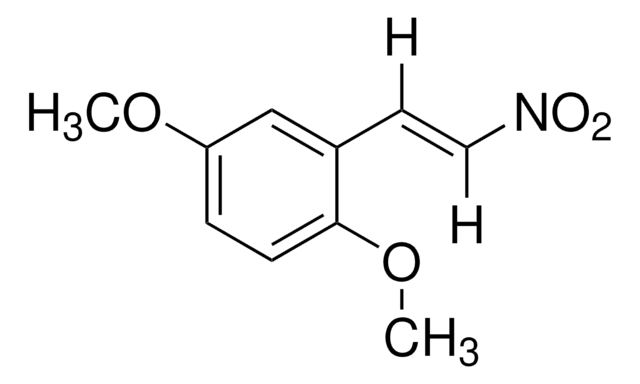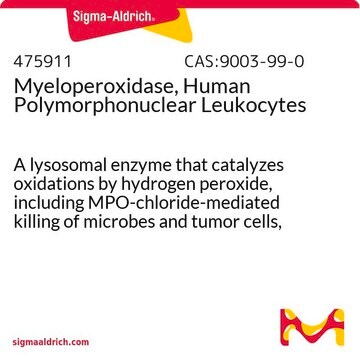SML2789
tBPC
≥98% (HPLC)
Sinónimos:
2-[4-(1,1-Dimethylethyl)phenoxy]cyclohexanol
Iniciar sesiónpara Ver la Fijación de precios por contrato y de la organización
About This Item
Fórmula empírica (notación de Hill):
C16H24O2
Número de CAS:
Peso molecular:
248.36
MDL number:
UNSPSC Code:
12352200
NACRES:
NA.77
Productos recomendados
Quality Level
assay
≥98% (HPLC)
form
powder
color
white to beige
solubility
DMSO: 2 mg/mL, clear
storage temp.
2-8°C
InChI
1S/C16H24O2/c1-16(2,3)12-8-10-13(11-9-12)18-15-7-5-4-6-14(15)17/h8-11,14-15,17H,4-7H2,1-3H3
InChI key
FTIXUILRMBSXNS-UHFFFAOYSA-N
Biochem/physiol Actions
tBPC is a postitive allosteric modulator of the neuropeptide Y (NPY) Y4 receptor, which is predominantly expressed in the gastrointestinal tract and activated most strongly by pancreatic polypeptide (PP). tBPC was shown to potentiate Y4R activity in G-Protein signaling and arrestin3 recruitment and to potentiate the native PP response. tBPC was selective for Y4R over other Neuropeptide Y receptors and showed no effect on the efficacy (Emax) or potency (EC50) of the NPY signal response at the Y1, Y2, or Y5 receptors at 30 μM.
Storage Class
11 - Combustible Solids
wgk_germany
WGK 3
Certificados de análisis (COA)
Busque Certificados de análisis (COA) introduciendo el número de lote del producto. Los números de lote se encuentran en la etiqueta del producto después de las palabras «Lot» o «Batch»
¿Ya tiene este producto?
Encuentre la documentación para los productos que ha comprado recientemente en la Biblioteca de documentos.
Mario Schubert et al.
Journal of medicinal chemistry, 60(17), 7605-7612 (2017-08-11)
The human Y4 receptor (Y4R) and its cognate ligand, pancreatic polypeptide (PP), are involved in the regulation of energy expenditure, satiety, and food intake. This system represents a potential target for the treatment of metabolic diseases and has been extensively
Nuestro equipo de científicos tiene experiencia en todas las áreas de investigación: Ciencias de la vida, Ciencia de los materiales, Síntesis química, Cromatografía, Analítica y muchas otras.
Póngase en contacto con el Servicio técnico







